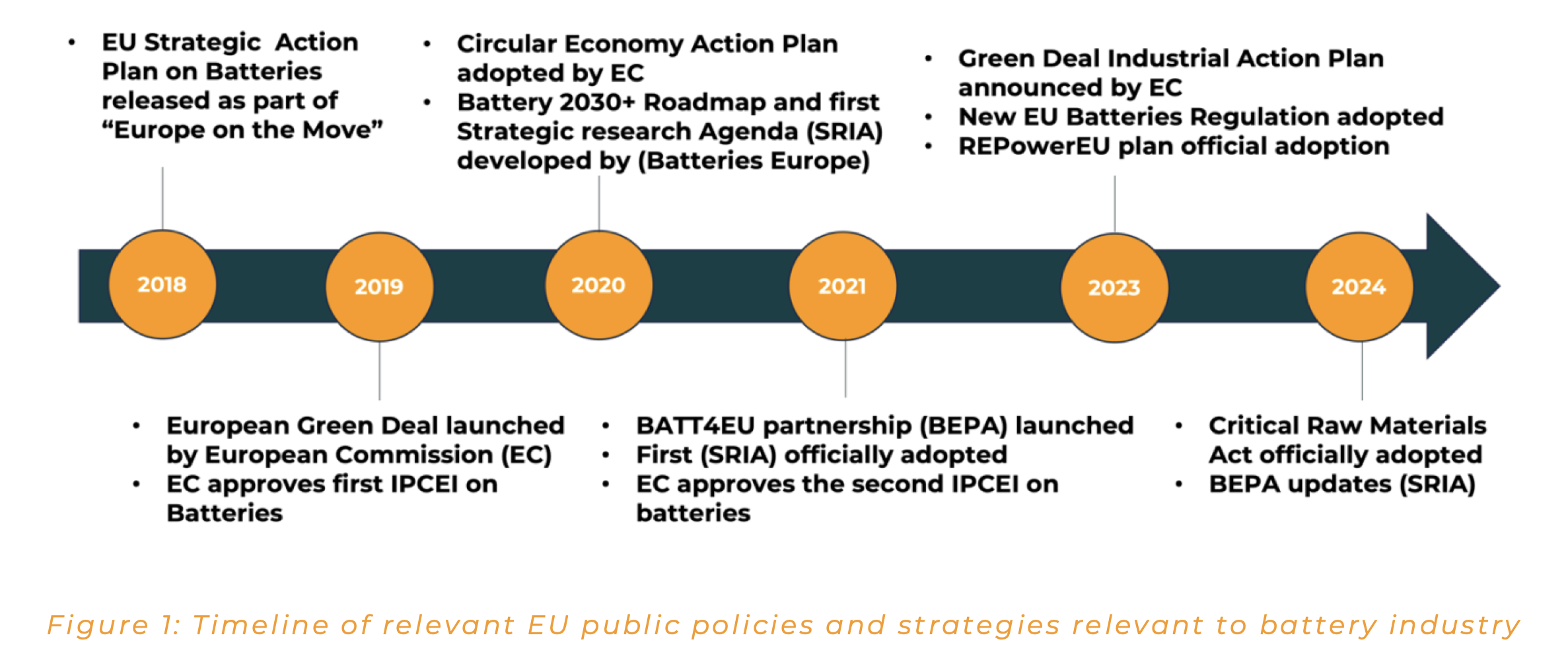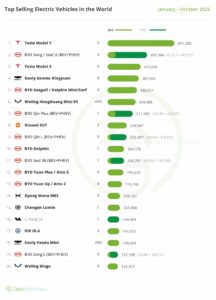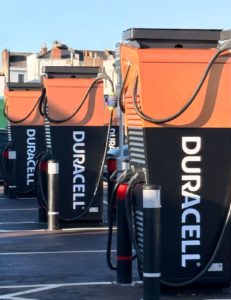The European Green Deal and Batteries
The European Green Deal is at the heart of the EU’s climate strategy. Its goal is to make Europe climate-neutral by 2050. Batteries are key to this plan. They help shift from fossil fuels to renewable energy. The EU’s Strategic Action Plan for Batteries, launched in 2018, supports this transition. It focuses on building a sustainable battery supply chain in Europe by ensuring access to raw materials, increasing production, and promoting research and innovation.
Key Policies and Initiatives
The New Battery Regulation, adopted in July 2023, sets sustainability standards and extends producer responsibilities. It emphasizes recycling, due diligence, and information traceability through a digital battery passport. This regulation is crucial for building a sustainable battery industry.
The Circular Economy Action Plan, launched in March 2020, aims to enhance circularity in the battery industry. It includes sustainability requirements for battery production, such as carbon footprint, ethical sourcing, and recycling. This plan is vital for reducing environmental impact and promoting resource efficiency.
Encouraging Clean Mobility
The EU has introduced regulations to boost battery demand. The CO2 Emission Performance Standards for Cars and Vans promote the adoption of zero and low-emission vehicles through a super credits system. This indirectly increases the need for batteries, supporting the battery industry’s growth.
The Alternative Fuels Infrastructure Regulation (AFIR), part of the Fit for 55 package, mandates the deployment of electric recharging infrastructure. This regulation supports the rapid electrification of the transport sector, further driving battery demand.
Supporting Innovation and Local Production
The Net-Zero Industry Act (NZIA) aims to boost manufacturing capacity for net-zero technologies, including batteries. Developed in response to the US Inflation Reduction Act, NZIA simplifies regulations and improves investment conditions, encouraging local production.
The Critical Raw Materials Act (CRMA) addresses the dependency on non-EU countries for raw materials. It promotes a secure and diversified supply chain by setting targets for raw material extraction, processing, and recycling within Europe. This act is crucial for ensuring the sustainability and security of the battery supply chain.
Overcoming Challenges
The EU’s battery strategy faces several challenges, summarized as the “4S”: Scope, Scale, Speed, and Sustainability. Developing the entire value chain and securing necessary investments are significant hurdles. Regulatory delays and high costs of sustainable practices also pose challenges.
However, these challenges present opportunities for growth. The EU’s focus on sustainability and innovation ensures that the battery industry remains competitive globally. Partnerships like the Batteries European Partnership Association (BEPA) play a crucial role in addressing these challenges through collaboration and innovation.
Competing on the Global Stage
Globally, the EU’s battery strategy is comprehensive. The US, under the Inflation Reduction Act, offers financial incentives for domestic battery production, enhancing competitiveness. China is shifting its focus from demand-side subsidies to supply-side measures, emphasizing battery recycling and circularity.
Despite higher production costs, the EU aims to bridge the gap through policies like the Green Deal Industrial Plan, enhancing local manufacturing and reducing foreign raw material dependency. This approach is designed to strengthen the EU’s position in the global battery market.
Looking Ahead
The EU’s battery policies and initiatives position it as a global leader. By focusing on sustainability, innovation, and a resilient supply chain, the EU aims to meet its climate goals and foster a competitive battery sector. The success of these policies will depend on effective implementation and overcoming challenges related to scale, speed, and sustainability.
In conclusion, the EU’s approach to battery strategy sets a strong foundation for a sustainable and competitive future, ensuring that Europe leads the way in the global transition to renewable energy.
Source: Bax & Company







